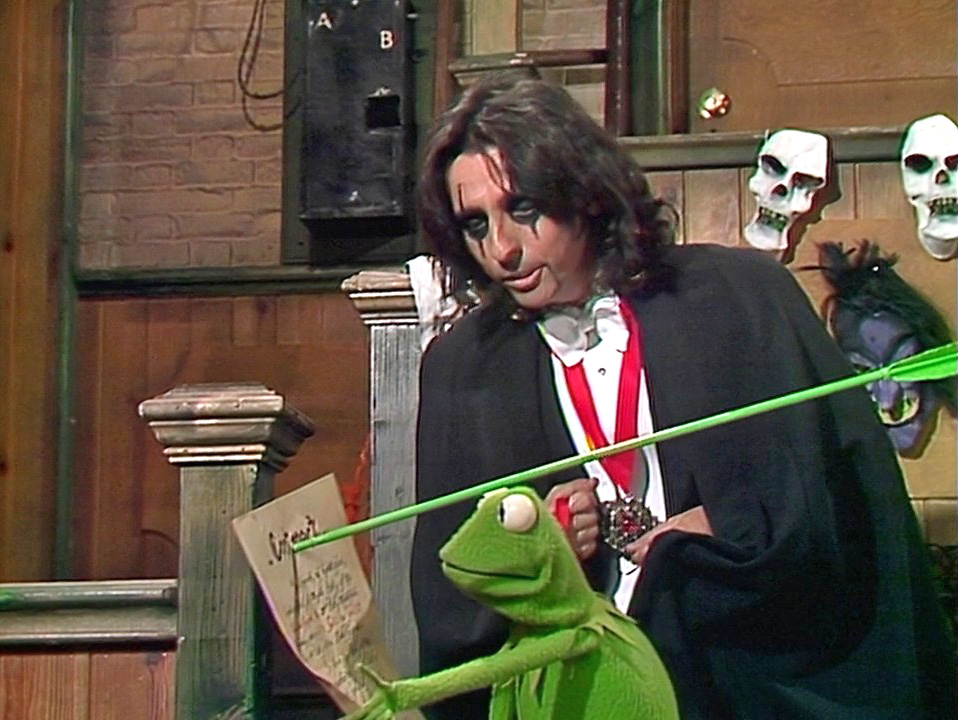Blaz was the “P”
a player FPSed through Castle Wolfenstein 3D,
stabbing/shooting/Gatling down pixelated Nazis and their dogs by the
hundreds, before getting to this guy:
Castle Wolfenstein
3D was goofy, violent, and very satisfying fun — a completely
addictive time-waster and a godsend to a single guy in his mid-20s
who'd finally outgrown the video arcade (although the original cabinet Simpsons game still enticed on occasion). Wolfenstein was the
gateway to video games as we now know them. It capitalizes on A) a
player's curiosity to see what unpleasant surprises lie beyond the next corner, B) the
innate fun of innocently shootin' up bad guys real good, C) the
darkly ironic sense of humour that ought to attend both those impulses.
When iD announced a
20-years-later reprise of Blaz and Castle Wolfenstein, I was juiced.
Globally victorious Nazis taking over the fizzy pop zeitgeist of the
'60s? Blaz to the rescue? Count me in!
I'd missed
subsequent additions to Blaz's epic of pixelated blood-letting, so I
had no idea what to expect from this latest chapter. Boy oh boy, was
I in for a shock: Blaz has an emotional life.
What does the
emotional life of a man who's personally perforated thousands of
Nazis, including a cyborged Fuhrer, look like? Why, nothing so much
as that of your run-of-the-mill aggrieved heterosexual adolescent
male, who thinks the mere fact of his existence entitles him to the
sexual affections of the dishiest dame in the room.
 |
| And he looks like this -- all the time. |
This complicates a
(seemingly) mature man's enjoyment of the game, to say the least.
Taking Blaz seriously is seriously wrong — it requires the player
to take Nazis seriously, an even greater story-board miscalculation.
The entire exercise is akin to sending Indiana Jones to give Oskar
Schindler a little help. And outfitting the camp commandant with some Robocops, just to make things interesting.
Which is not to say
I abandoned the game in a state of high moral dudgeon. It's a short game,
finally, with some amusing elements. Rocketing Blaz to the moon
captured perfectly the deranged goofiness of the original game. For a
moment I was surprised and delighted to see the game's physics
replaced by the physics one expects on the lunar surface. Of course
the physics revert the second Blaz steps through an air-lock — I
guess the Nazis invented artificial gravity.
But then this
entire game is built on artificial gravity. I can't imagine Blaz's
“poor me/what a crazy, mixed-up woyeld” mutterings tugging at
anyone's heartstrings, but I could be wrong — when I see the lads attempting to catch the attention of my daughters, I'm continually struck by
the distance of perspective I have on my own adolescence.
If nothing else,
iD's missteps highlight for me what I generally expect from a game.
Diversion, first and foremost. Secondly, emotional bonds that are light and
exclusive to the world as rendered in the game — evocative, but not
too evocative, of actual reality.
And really, by now
the bottom line for game developers couldn't be clearer: aggrieved
adolescent hetero males — no matter what their age — don't want
to be reminded of their miserable plight. Easy-peasy . . . right?
Elsewhere: AV Club asks, Is it okay for Wolfenstein to turn Nazis into cartoons?
Elsewhere: AV Club asks, Is it okay for Wolfenstein to turn Nazis into cartoons?














